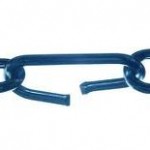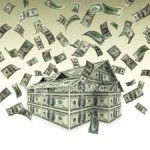What Makes A Good Real Estate Deal?
 “Sometimes the best deal you will ever do is the one you don’t do!” ~ JD Esajian
“Sometimes the best deal you will ever do is the one you don’t do!” ~ JD Esajian
This is the million-dollar question: “what is a good deal“?
While a good deal can make you a million bucks in some cases, a bad deal can also lose a lot of money as well. There is no one answer to this question, but here are some commonalities that we can look at:
 Motivation is key.
Motivation is key.
There needs to be a higher level of motivation from the seller. Whether you are dealing with an individual home owner or a company such as the bank, courts or city entity, they have to be motivated to sell.
That does not mean desperate, but if they have no want or need, your likelyhood of getting a good price is much lower. You need to look closely at the motivation; if you do not know what it is, then you should find out. Ask the owner why they are selling and see if you can help them solve a problem. The banks motivation will be to get a bad asset off their books, but if they have multiple offers then their motivation level changes and they get back on the drivers’ seat.
 Numbers are vital.
Numbers are vital.
You have to be able to buy the house or building at a discount of some kind. Determining the current market value quickly, understanding repair costs and then formulating the price you can pay is a process that you must understand and get good at.
The old MOA (maximum allowable offer) formula is an investors quick rule of thumb. ARV (after repair value) X 70% – Repairs = MAO.
There are many different ways to invest, of course. There are short sales were you can create your own equity. You can buy property with owner financing and no money out of pocket. You can assign contracts and never own the property. In all cases you will need to look at the numbers. If you don’t buy at a discount, you are simply a retail buyer acting like an investor.
 Problems turn into profit.
Problems turn into profit.
Usually the amount of problems with the seller or property will be directly proportionate to the profit. The more problems there are, the greater the profit (usually). If the house has been in a major fire, you have problems. Therefore you should be able to buy at a deeper discount. If the REO has fallen out of contract 4 times, the bank has problems and is motivated to sell quickly and for a lower price. Now there are exceptions to this, of course, but in most cases, more problems will mean more money.
 Education puts you ahead of the curve.
Education puts you ahead of the curve.
Fear is a lack of education. The more educated you are, the better you can evaluate leads and determine deals. Also, look at the other benefits. If you know more that others, they will look to you for answers and help with their deals. You become the authority in your circle and as a result, more deals come your way. Education will not only help you determine what a deal is, but it can also bring more deals to you.
While there are many things that make a great deal, these are the big ones that you should keep on your radar.
View original at: https://www.cthomesllc.com/2010/08/what-makes-a-good-real-estate-deal/